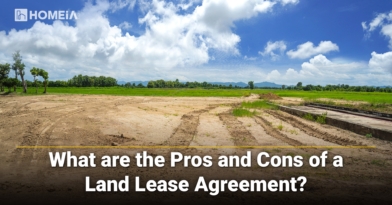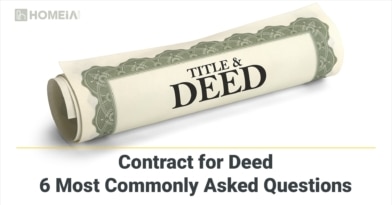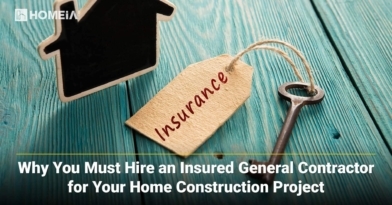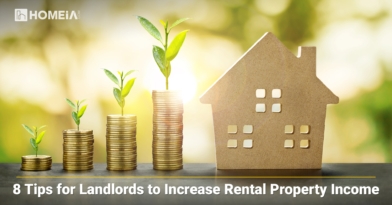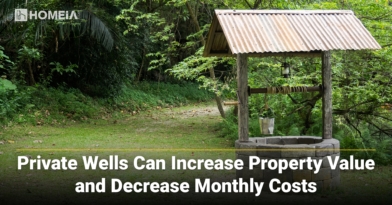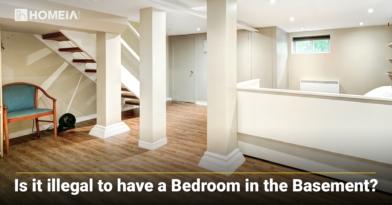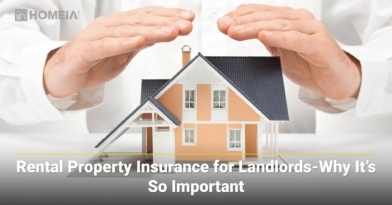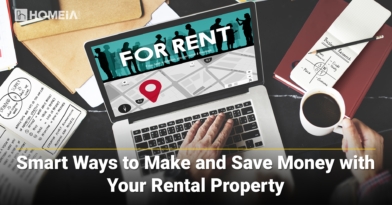15 Important Items to Include in Your Lease or Rental Agreement
- Contributor:by The HOMEiA Team
- Category: Real Estate Investing
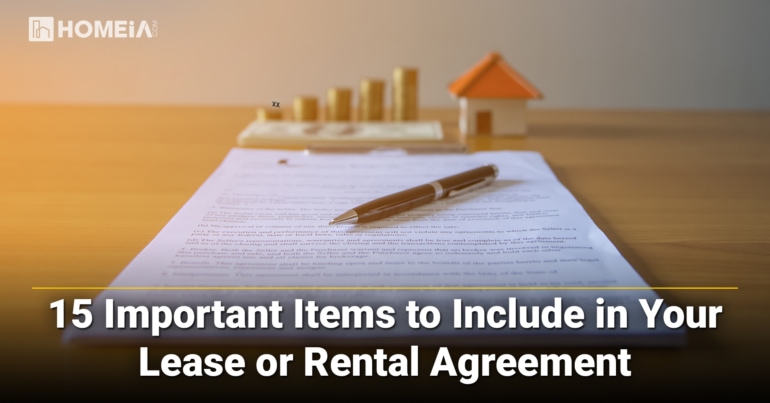
You’ve got the property, so now you’re ready to find some tenants and start making back your investment, right? Not so fast. In order to protect yourself legally and make sure you have the best possible landlord-tenant relationship, you’ll need to prepare a lease or rental agreement for your rental unit.
Anytime you’re dealing with a legally binding document, it’s a good idea to work with a lawyer. A lawyer can give advice specific to your situation and make sure you’re covering all your bases.
While this article is not offering legal advice, we will explore some of the most common terms to include in your agreement and why it may be a good idea to include them.
Another good place to start is with a ready-made template from a site like FormsPal — that way you won’t forget any major categories. You (and your lawyer) can customize the agreement to fit your exact needs.
One more clarification before we begin: while the terms are often used interchangeably, “lease” generally refers to a longer agreement (usually 12 months) while a rental agreement usually has a 30-day term. Otherwise, they are very similar.
The best agreements provide answers to most of the questions that may arise between tenants and landlords, such as who is responsible for what.
Here are 15 items and terms you might want to include in your agreement.
Table of Contents:
- 1. Parties to the Agreement
- 2. Occupants
- 3. Property Identification
- 4. Rental Term
- 5. Rent
- 6. Deposits and Fees
- 7. What’s Included
- 8. Privileges
- 9. Occupancy Limits
- 10. Repairs and Maintenance
- 11. Entry to the Property
- 12. Subletting rules and restrictions
- 13. Insurance Requirements
- 14. Rules and Restrictions and the Process for Addressing Violations
- 15. Signatures and Dates
1. Parties to the Agreement
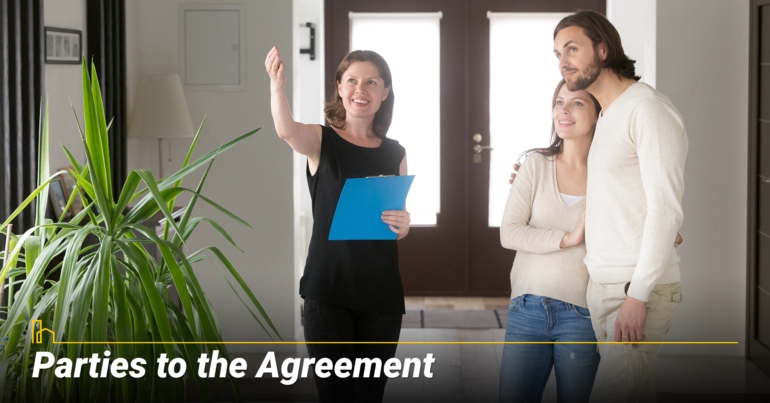
As with any legally binding contract, the lease or rental agreement must identify the parties involved — the landlord and the tenants. It’s also important to include contact information (even though you know where they’ll be living).
What if multiple adults are living in the rental unit? There may be benefits to having all adults sign the lease individually. For example, if one tenant fails to pay rent, the others can be held responsible for payment.
Why it matters:
Each tenant is responsible for the entire agreement. You can hold any of the tenants responsible for payment, and you can terminate the lease if any tenant violates a major term.
What are the Pros and Cons of a Land Lease Agreement
A land lease agreement, which can range from 50 to 99 years, outlines rules and obligations for the lessee when it comes to the use of the land. The arrangement has some distinct advantages and disadvantages for the home buyer. It’s important that you understand both before you…
2. Occupants

Your agreement should include everyone who will be living in the property, not just the one(s) responsible for paying rent. This means roommates and family members, including children.
If pets are allowed, include their description as well (e.g., one Saint Bernard and two macaws).
Why it matters:
Specifying all occupants may give you more control over who lives in the unit — giving you the ability, for example, to evict someone who moves in without permission. It’s also just a good idea to know who lives in your property.
10 Key Things to Know Before Buying a Manufactured Home
Manufactured homes can cost anywhere from $20,000 for a basic single-section home to upwards of $200,000 for a multi-section home with all the upgrades. The average cost is about $82,000. Here’re 10 important things you should know before you buy a manufactured home…
3. Property Identification

A proper lease or rental agreement needs to identify the property that is being rented out. Start with the address, but if the rental unit doesn’t include the entire property at the address, specify the unit or describe the part of the house (for example, second floor bedroom and bathroom).
Be sure to include any space beyond the living unit which the tenant’s belongings may occupy. Parking spaces and storage units are the most common.
Why it matters:
If any dispute arises between you and the tenant, you’ll want to make sure your agreement clearly defines what space is being rented to the tenant.
Recommended for you
4. Rental Term
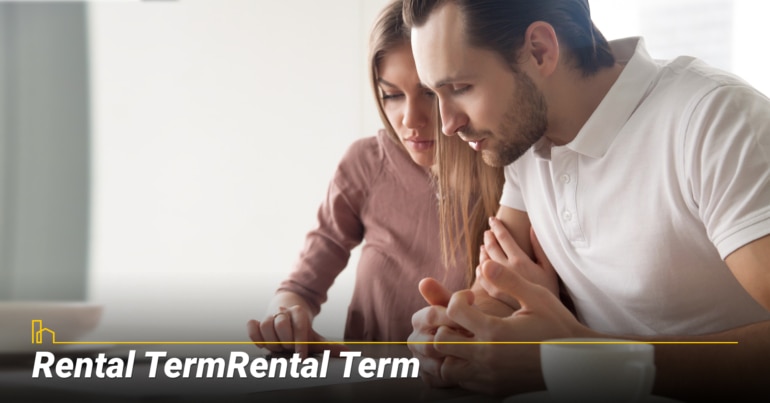
How long is the tenant committing to pay rent on the property? Your agreement should include the start date of the lease and indicate whether it is ongoing (such as month-to-month) or limited term (such as one year).
It is also important to indicate how the lease term will end. Is it absolute, or must the lease be renewed by a certain date?
Why it matters:
You and the tenant will both need to know when the lease needs to be renewed or when the unit will be available to new tenants.
The Advantages and Disadvantages of a Contract for Deed
Instead of a conventional lender, such as a bank, credit union or mortgage company financing the outstanding balance of the purchase price, in a Contract for Deed, the home seller plays the role of the lender….
5. Rent
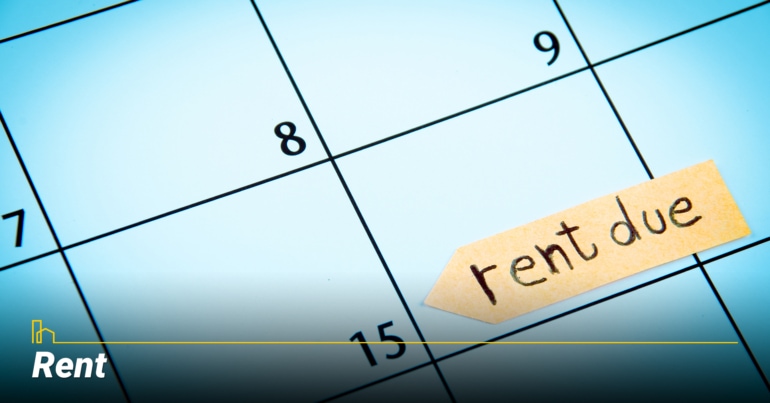
The monthly rate is not the only aspect of rent that you should include in your agreement. You will also want to specify when it is due, what types of payments are acceptable (for example, personal check or electronic deposit), and your policy and fees for payments received late or bounced checks.
Why it matters:
Most likely, the rental income is your major reason for becoming a landlord. Whenever money is supposed to change hands, you’ll want to have the obligation in writing and signed by both parties so you can enforce the agreement later on in case of a problem.
Pros & Cons of Modular Homes Investment
Are modular homes a good investment today? The answer is Yes, modular homes values can increase over time. As with all housing options, there are tradeoffs when choosing a modular home. They’re not for everyone, but for an increasing number who value economy, quick completion, and even quality, a modular home could be a great…
6. Deposits and Fees

The security deposit is your way to ensure that, if the tenant damages the property, you will have some funds to put toward repairs and replacements. That said, some wear and tear is to be expected, and your lease agreement should reflect that.
A security deposit can also encourage your tenants to keep the unit in good shape so they can get the money back.
Don’t forget any additional deposits and fees, such as parking fees, key deposits or replacement fees, and pet deposits.
Why it matters:
You’ll want to be able to turn to the agreement if the tenant resists paying any fees. Also, if you need to retain a portion of the deposit upon move-out, you’ll want to be sure you’re legally justified in doing so.
Why You Must Hire an Insured General Contractor for Your Home Construction Project
If you decide to venture out on your own and have a custom built home with a custom home builder, do make sure you do your due diligence and find out as much as possible about your potential builder or in another word, your general contractor…
7. What’s Included

Utilities are the main thing to explain here. Who is responsible for paying for electricity, gas, cable, or internet service?
A comprehensive agreement will also include the appliances that are included in the rental — for example, the oven and refrigerator. If you are supplying a furnished home, include an inventory of furniture items as well.
Why it matters:
Including these items in the agreement is the best way to prevent any conflicts in the future over who is responsible for payments and upkeep.
Recommended for you
8. Privileges

If there are any areas outside the rental unit, such as a yard, an exercise room, or a swimming pool, be sure to include their description in your agreement.
Why it matters:
This item provides more protection for the tenant than the landlord, providing evidence that the tenant has been given access to these amenities.
8 Tips for Landlords to Increase Rental Property Income
There’re many ways to improve rental profits. For example, you can minimize expenses and protect your investment with preventive maintenance. Here, we will focus on 8 ways to improve your rental profits by upgrading the interior and exterior of your property…
9. Occupancy Limits

In many cases, the agreement will specify that only the adult tenants who have signed the lease and their children (minors) are allowed to occupy the rental.
If you want to set limits on the number of guests allowed in the unit, or the length of time additional guests can stay, you can also specify those restrictions within the lease or rental agreement.
Why it matters:
You will have control over who lives in your rental unit — specifically, only people you’ve decided to allow (and screened). You’ll have the ability to evict anyone who moves in without permission.
You can also provide the grounds for controlling noise and safety by asking short-term guests to leave if their presence has violated the lease or rental agreement.
Private Water Wells Can Increase Property Value and Decrease Monthly Costs
Water wells can bring forth nostalgic visions of a simple life where one fetched a bucket of water at the pump. While wells have a place in the imagination, they also have a place in the modern world. Simply put, a well is a private water source that can serve as an alternative to a municipal…
10. Repairs and Maintenance
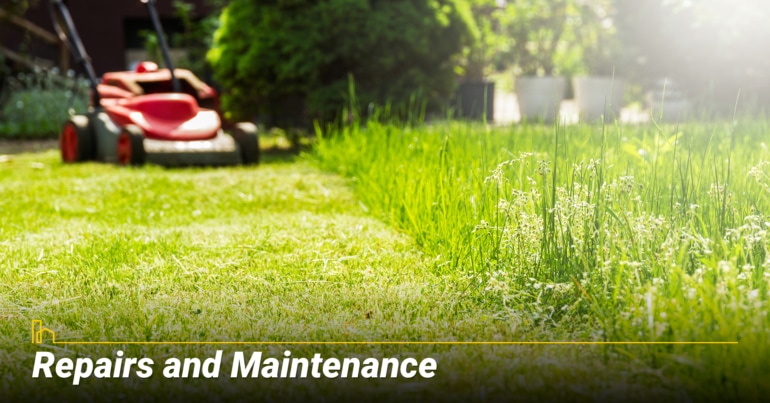
No matter how great your tenants are, at some point something is going to break, and your agreement needs to specify what should happen. Are tenants required to notify the landlord or a maintenance person? Who will be financially responsible for the repairs?
Regular maintenance is important, too. If there are items that need to be inspected, how will the process work?
Think through any semi-public areas, such as sidewalks and driveways. Who will be responsible for snow removal? Lawn mowing?
Why it matters:
If you don’t specify who is responsible, either side may try to shirk the responsibility. Best to get everything in writing.
Is it illegal to Have a Bedroom in the Basement?
Thinking through your options, you realize there is unused space in the basement. If you just tidy up the storage a bit, you would have room for a bed. But wait… something in the back of your mind says you can’t have a bedroom in the basement. Is that true? Here we’ll take a look at the truth about basement bedrooms, and how you can make your…
11. Entry to the Property

A landlord needs to be able to enter the unit from time to time to ensure no major violations are occurring, to perform repairs or maintenance, or to show the unit to a prospective renter. How will such visits be announced, and how often will regular visits occur?
Why it matters:
While landlords need the ability to enter the unit in the event of an emergency, tenants should also be free from frequent or unannounced visits when possible.
The Basic Steps to Start a Successful Real Estate Business
If you are considering becoming a real estate agent, you are in good company. In the United States alone there are about two million people with active real estate licenses. It is a career choice that appeals to many people, especially given the popularity of television shows about renovating, buying and selling…
12. Subletting rules and restrictions
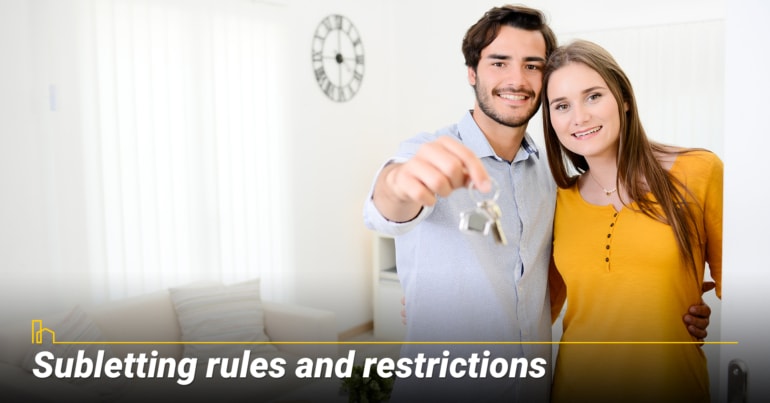
You may have strict rules against subletting the unit, or all subletting may be required to go through the landlord. In either case, the rules should be clearly laid out in the agreement.
Why it matters:
As the landlord, you want to maintain control over who is occupying your space, and you want to make sure that the arrangement takes place within the bounds of your own lease or rental agreement.
Subletting Apartment: What it means, How to do it right, and Who should do it
You’ve been offered your dream job in another state. Your long-lost great uncle has died and left you his Victorian mansion. Or you’ve heard the call of the open road and decided it’s time to sell all your belongings and experience #VanLife. Here’re Key things you should know BEFORE subletting your apartment…
13. Insurance Requirements
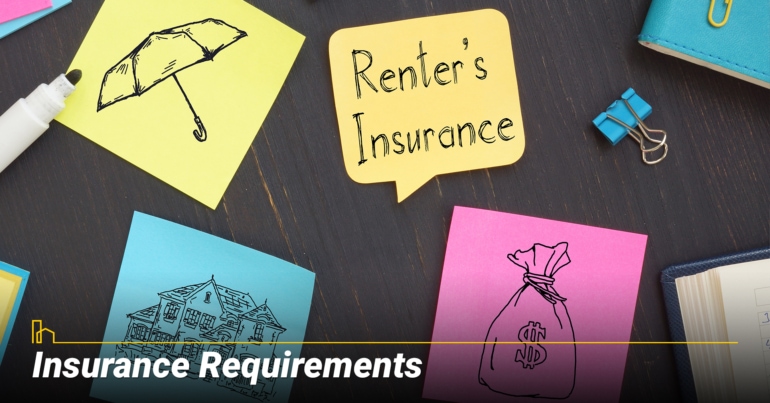
If you require renters to have their own insurance, include that requirement in the agreement.
Why it matters:
Renter’s insurance covers the renter’s belongings, which are generally not covered by the landlord’s insurance. It can also include liability coverage. Renter’s insurance may also keep your tenants from attempting to hold you liable if anything happens to their belongings.
Rental Property Insurance for Landlords — Why It’s So Important
As a rental property owner, you have a lot at stake. Carrying adequate insurance for rental properties is what ties it all together. That also presents an equally appealing chance for you to create additional income and equity, and you…
14. Rules and Restrictions and the Process for Addressing Violations
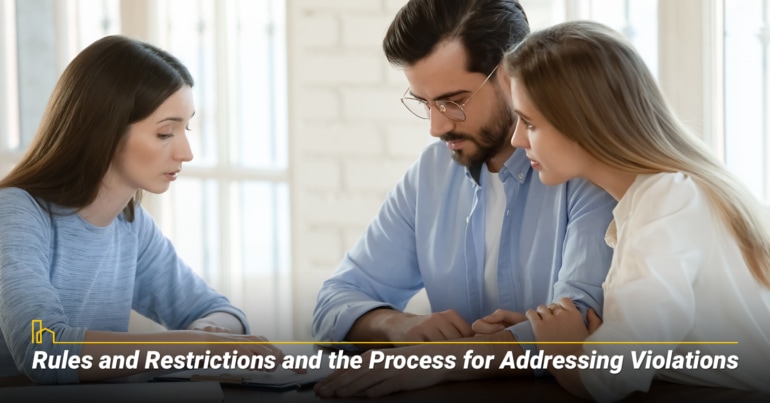
Your lease agreement may also include restrictions on your tenants’ activities. Some of these may include restrictions on illegal activity, smoking, noise, pets, or modifications to the rental unit (such as painting). Explain how you will treat any violations.
Why it matters:
If you want to hold renters to a rule, put it in the agreement.
Recommended for you
15. Signatures and Dates

As with any agreement, you’ll need each party to the agreement to sign and date it.
Why it matters:
You’ll need to make sure your lease or rental agreement is legally binding.
Becoming a landlord is a big responsibility, and there is a lot of paperwork involved. The most important document, though, is your lease or rental agreement. It states the rights and responsibilities of each party and gives you a way to legally enforce any rules or restrictions. Make sure you take the time and get the help you need to do it right.
We hope you find this article helpful. If you do, please share it with others who you think will also benefit from it as well so this article can fulfill its mission. Thanks in advance!
10 Smart Ways to Make and Save Money with Your Rental Property
Some landlords find that after all the expenses, their income isn’t enough to generate a positive cash flow. Instead of a goose that lays golden eggs, they end up with an ordinary, squawking bird whose feed costs more per month than a daily omelet. Don’t let that happen to you…

